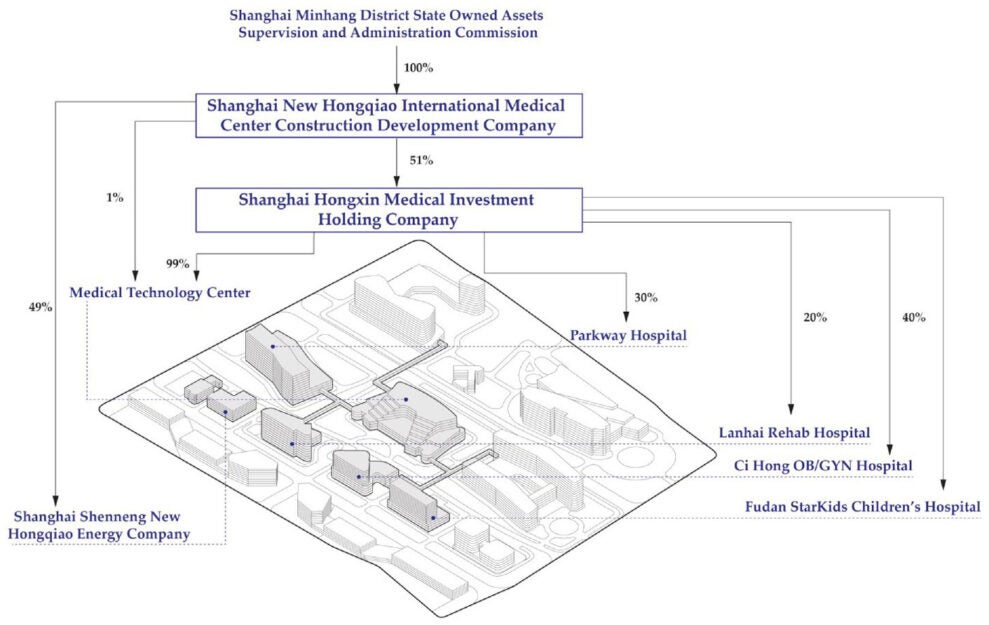Abstract
The role of hospitals has significantly changed over the past decades and the ‘medical city’ has emerged as a new urban phenomenon in China. However, research on the significance of the medical city to China’s urbanism is limited. This paper situates China’s medical city in the theory of state entrepreneurialism and rethinks consumerism in healthcare. Particularly focussing on the state–market and production–consumption dyads, the paper argues that the state has engineered the institutional and market legitimacy for the rise of consumerism in healthcare and allows the medical city to capitalise on the provision and consumption of high-end healthcare services to advance the healthcare reform and capture economic opportunities. This argument is substantiated by a case study on the Shanghai New Hongqiao International Medical Center, which focusses on the public–private partnerships in the medical city. It is found that while the production of the medical city is based on private sector participation, the state’s presence is diffused in the governance of the medical city through public–private partnerships, which reflect the characteristics of state entrepreneurialism. The findings add to the theory of China’s urbanism with new sets of materials and render important implications for the urban future in China.
Resources
-
Nie, Xuanyi. 2023. “The ‘medical city’ and China’s entrepreneurial state: Spatial production under rising consumerism in healthcare.” Urban Studies, 60(6), 1102–1122. doi: 10.1177/00420980221131246

